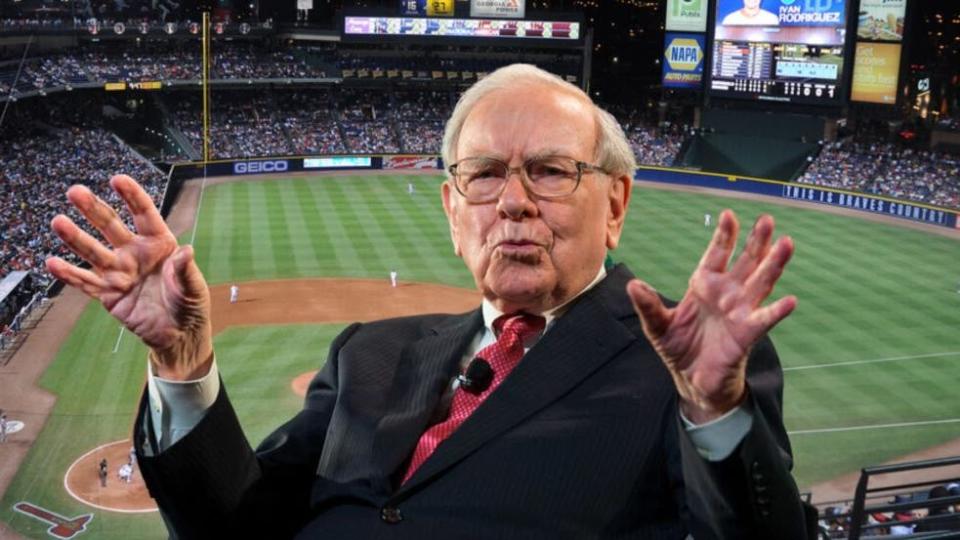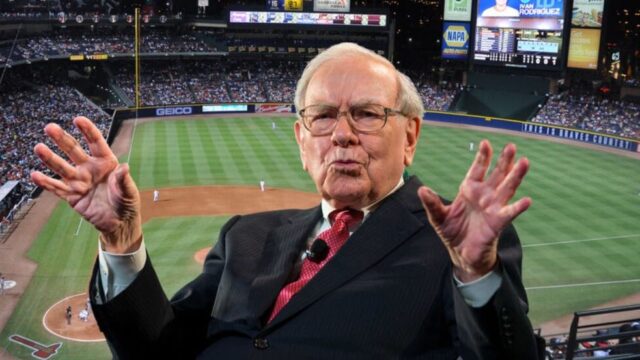
Investing is linked to risk, a reality recognized by investors globally. The potential for permanent capital loss is a fundamental concern in finance, defining the essence of risk. Yet, perceptions of risk vary among investors. Warren Buffett, one of the richest people in the world, provides a unique perspective on this topic.
In 1993, Buffett spoke to Columbia University’s Business School graduates. Asked about his method for evaluating risk, he said, “Risk comes from not knowing what you’re doing.” This quote reflects Buffett’s investment philosophy, highlighting the crucial role of knowledge and understanding in reducing risk.
Buffett’s strategy focuses on long-term business fundamentals over short-term market changes. He doesn’t hastily react to share price drops in his holdings, basing his decisions on an in-depth understanding of the businesses.
Don’t Miss:
A mistake early in Buffett’s career exemplifies this principle, albeit not in a positive way. At age 21, he invested 20% of his net wealth in a Sinclair service station, ultimately losing the entire $2,000 investment, according to the book “The Deals of Warren Buffett, Volume 1: The First $100M.”
Buffett’s loss taught him the value of competitive advantage in business. His Sinclair station struggled against a dominant Texaco station, highlighting the importance of a unique market position. This lesson later guided his successful investments in American Express Co. and Coca-Cola Co., which benefitted from strong customer loyalty and competitive advantages.
Business risk, a primary focus for Buffett, concerns the future earnings of companies. He seeks to invest in businesses poised for earnings growth. Understanding a company’s potential and factors influencing its earnings helps Buffett avoid uninformed decision-making.
Buffett, despite being hailed as one of the greatest investors, has faced notable failures throughout his career, in addition to his early missteps at Sinclair service station. Two significant examples are his investments in Dexter Shoe Co. and Energy Future Holdings Corp.
Trending: Copy and paste Mark Cuban’s startup investment strategy according to his colorful portfolio.
The Dexter Shoe Co. deal in 1993, where Buffett used Berkshire Hathaway stock worth $433 million, ended up being a major loss. The value of those shares today is estimated to be around $8.7 billion, marking the deal as a financial disaster. Energy Future Holdings resulted in a loss of $873 million for Berkshire Hathaway, according to CBS News. Buffett purchased bonds of Energy Future Holdings, worth $2.1 billion in 2007, is betting on rising natural gas prices. However, the company declared bankruptcy in 2014, and Berkshire sold the bonds at a significant loss.
These experiences illustrate that investment risk isn’t just about market unpredictability or economic instability; it’s profoundly about an investor’s knowledge and comprehension of their investments. Buffett’s approach emphasizes the importance of informed decision-making in successful investing, providing critical insights for investors at all levels.
Investing in startups presents similar risks but with the potential for high rewards. Like Buffett, investors can minimize risk by thoroughly understanding the business, its market potential and the team behind it. This knowledge-based approach aligns with Buffett’s philosophy: Informed decisions can significantly reduce the risks associated with investing in early-stage companies.
Read Next:
“ACTIVE INVESTORS’ SECRET WEAPON” Supercharge Your Stock Market Game with the #1 “news & everything else” trading tool: Benzinga Pro – Click here to start Your 14-Day Trial Now!
Get the latest stock analysis from Benzinga?
This article Warren Buffett’s First Failed Business Venture Cost Him 20% Of His Net Worth — Now He Says, ‘Risk Comes From Not Knowing What You’re Doing’ originally appeared on Benzinga.com
© 2024 Benzinga.com. Benzinga does not provide investment advice. All rights reserved.




